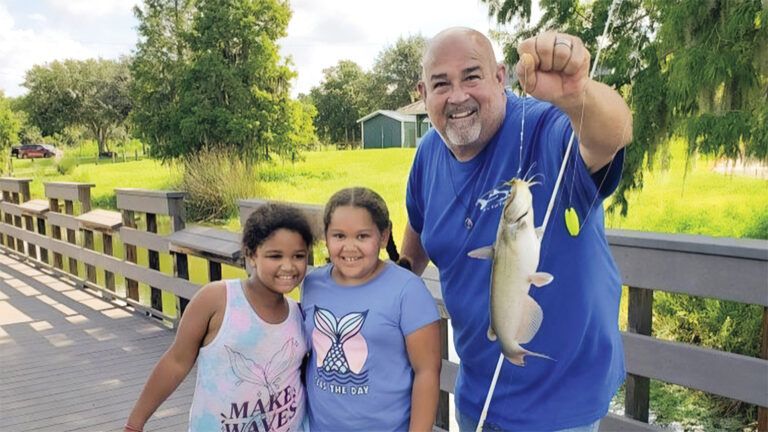The call had come in early December 1958 from the regional director of home missions for the Presbyterian Church. He had asked me if I would preach for two weekends to a group of people in the coal-mining area near Castlewood, Viriginia. A student preacher on my Christmas holiday, I leapt at the chance.
That first Sunday, as I turned off the main highway onto a winding gravel road, I felt as though I had driven into a time warp. Clapboard and tar-paper shacks slumped against the hillside. Smoke eased up over each building in columns like gravestones and soft oil lamps shone in the windows. But there was not a sound in the early morning gloom, not even dogs barking to announce a stranger was passing. Just black, cold silence.
The church was a simple cement-block building. It had a flat tar-paper roof with a stovepipe for a steeple. The surrounding shacks were unpainted, the ground was barren, everything was covered with soot, and the smell of coal hung in the air.
As the congregation filed in I noticed their clothing was worn but neat. Their faces were pale and their eyes sunken. Inside, we all gave thanks to God. But there was no indication that this was the Christmas season. No trees, no lights, no wreaths, no red bows.
After the service a woman in a denim jacket introduced herself and her three children, John, Luke and Sarah. Her name was Mrs. Spense, and she invited me to lunch. A solemn, thoughtful woman, probably in her 30s although she looked much older, she hurried home to prepare the meal while the three youngsters and I ambled along behind her on the icy path.
We entered a two-room shack by a front door that was so flimsy I could see through it. The main room was illuminated by three kerosene lamps and a potbellied stove glowing like a jack-o’-lantern. Mr. Spense sat in a wooden rocker next to the stove, chewing a pipe with a chipped bowl and broken stem. “Welcome, Preacher,” he said. I glanced around the room. The thin, cracked walls were covered with newspaper and torn paper bags to keep out the wind. A tattered quilt hung on a wire to hide the two beds and the cooking area. There was running water, but the outhouse in back was the only bathroom.
The children stood quiet at first. My gaze fell on an old bluetick hound stretched out so close to the stove that I thought I could smell his fur being singed. Snuggled up to his stomach was a raccoon. “Them’s Blue and Bandit,” John explained. “And them’s ours.”
We sat for a while, not saying much. Lean and lanky John was intent on whittling the bark off a stick with a broken barlow knife, neatly throwing the scraps into the stove fire. Luke took out a river rock and began polishing it intently with a piece of wool. Like a master craftsman, he held it up to the light and blew the dust off, then resumed polishing. Sarah sat by watching with wide eyes.
Lunch was soon ready. My pie-pan plate had been heaped with potatoes and beans provided by two neighbor ladies. The meat was something Mr. Spense had caught earlier in the week (I didn’t ask what). Mrs. Spense said, “Preacher, would you pray for us?” We held hands over a table made of rough planks covered with oilcloth.
I didn’t linger after lunch. Excusing myself, I thanked the Spenses for their hospitality. As I stood at the door, putting on my overcoat and gloves, the children eyed me curiously. John reached out and patted the cuffed fur lining of my gloves. I asked Luke about the man’s felt hat he wore. He had picked it up along the road. “He don’t never take it off,” Sarah said. “Even when he sleeps.”
I promised to be back the next week, the Sunday before Christmas. Then I asked the children, “What would you like for Christmas?”
“Mr. Preacher,” John said, “Christmas don’t never come here.”
Mrs. Spense put her hand on his shoulder. “Now, John,” she said, “there’s more important things.”
I stepped off the porch, fighting tears. As I drove down the mountain I was determined that somehow I would bring Christmas to the Spense family.
All week I kept wondering what I could do for them. They were proud people; I couldn’t give them a handout. Although the children had no toys, it was clear they entertained themselves easily. They were polite with one another and treated their parents with respect. Their mother’s words rang with new meaning: “There’s more important things.”
The next Sunday, following the morning worship service, I stopped by to drop off some packages for the Spenses. I explained that in my family when people do something kind for us, we have the blessing of sharing some of our resources. It’s the giving that’s important.
The first present I gave them was a two-foot Christmas tree that had sat on the counter of the corner drugstore back home. The store owner heard me talking with some friends about the plight of people in that coal-dusted place. “Flannagan,” he shouted, “how about moving that tree out for me? Maybe someone could use it.” Decorated with tinsel and gold ornaments, it sparkled in the Spenses home.
Next, Mr. Spense unwrapped his pipe. One of my professors, after asking about my weekend, had picked a beautiful pipe from his collection and handed it to me, saying, “Bill, I need to make room for another pipe. Could you pitch this one for me?”
“It’s already broke in,” Mr. Spense noted as he turned it over in his hands.
I witnessed the first smile I had ever seen on Mrs. Spense’s face when she opened a box that held a beautiful wool sweater. My mother had insisted I take it, saying, “Mrs. Spense needs this more than I do.”
When John opened his present and found my old Boy Scout pocketknife, his comment was, “Wow!”
Luke paced like old Blue until he could open his gift—the biggest box of all. He tore through the paper and let out a shout when he found one of my dad’s gray felt hats. “Perfect fit,” he announced, pulling it down over his ears.
Then came Sarah, who had waited patiently for her turn. After opening the wrappings, she exclaimed, “Mama, it’s a real baby doll! My first baby doll!”
I had a huge box of food that had been sent by the grocer back home. Mrs. Spense immediately divided up the groceries for the neighbors who had helped supply my feast. Plus, she put aside a few items for some needy families down the hill.
I had not forgotten Blue or Bandit. Blue took his ham bone and worked on it by the stove. As Bandit began to clean his treats, I asked the Spense family if I could pray for them. But before I did, the children spoke up. “Mr. Preacher,” said John, “we’uns want to give you something.” He proudly gave me the latest stick he had stripped and sharpened. Luke handed me his precious polished river rock. And when sweet Sarah gave me her biggest hug, I wondered, after all, who had brought Christmas to whom?





